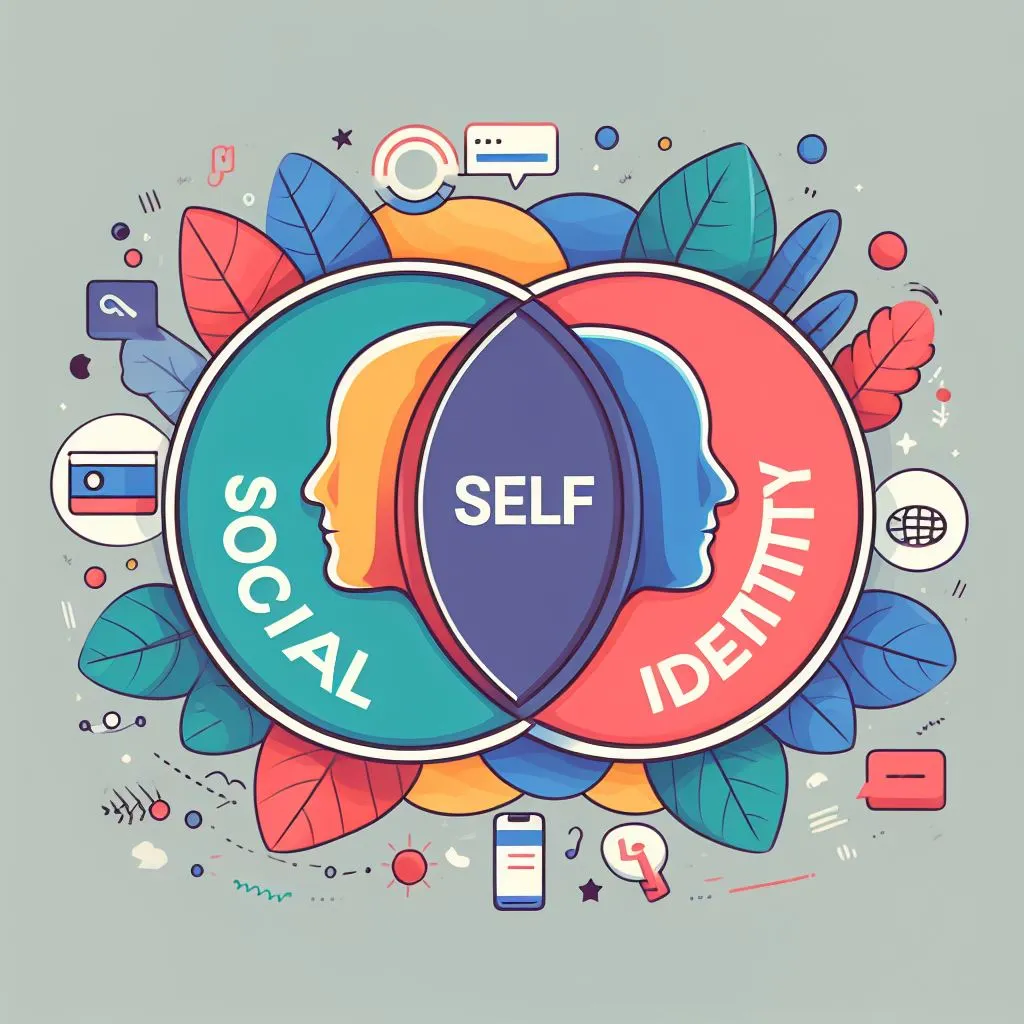Social Identity
Social identity refers to the way individuals define themselves based on their membership in various social groups, such as race, ethnicity, religion, gender, or occupation. It is shaped by the norms, values, and beliefs of these groups, as well as the individual’s perception of their role and status within them. As explained in the book “Social Identity Theory” by Henri Tajfel and John Turner, social identity is “that part of an individual’s self-concept which derives from his knowledge of his membership in a social group (or groups) together with the value and emotional significance attached to that membership.”
Self Identity
On the other hand, self-identity, also known as personal identity, is an individual’s unique sense of who they are, their personality traits, values, beliefs, and goals that are separate from their social identities.
It is a more internal and subjective concept, shaped by personal experiences, relationships, and self-reflection. In the book “The Presentation of Self in Everyday Life” by Erving Goffman, self-identity is described as “the personality that an individual projects in all situations and at all times.”
The key difference between social identity and self-identity lies in their sources and influences. Social identity is derived from an individual’s membership in social groups and the associated norms and expectations,
while self-identity is a more personal and introspective concept that reflects an individual’s unique personality, values, and beliefs.
It’s important to note that social identity and self-identity are not mutually exclusive; they can influence and shape each other. An individual’s self-identity may be influenced by their social identities, and their social identities may be influenced by their self-identity. However, they are distinct concepts that play different roles in an individual’s overall sense of self.
In summary, social identity refers to an individual’s sense of belonging to various social groups and the associated norms and expectations, while self-identity is a more personal and introspective concept that reflects an individual’s unique personality, values, and beliefs.
Here’s a table summarizing the key differences between social identity and self-identity in a concise manner:
| Aspect | Social Identity | Self-Identity |
|---|---|---|
| Definition | How an individual defines themselves based on their membership in social groups | An individual’s unique sense of who they are, their personality traits, values, and beliefs |
| Source | Derived from group membership and associated norms, values, and expectations | Derived from personal experiences, relationships, and self-reflection |
| Nature | External, based on social categorization and roles | Internal, based on individual traits and characteristics |
| Influence | Shaped by group dynamics, social status, and intergroup relations | Shaped by personal growth, self-awareness, and introspection |
| Manifestation | Conformity to group norms, stereotypes, and behaviors | Expression of unique personality, individuality, and authenticity |
| Examples | Racial, ethnic, religious, gender, or occupational identities | Introversion, ambition, creativity, resilience, or ethical beliefs |
In essence, social identity is primarily influenced by external factors and group dynamics, while self-identity is more internal and shaped by personal experiences and self-reflection.
References:
- Hogg, M. A., & Abrams, D. (1988). Social identifications: A social psychology of intergroup relations and group processes. London: Routledge.
- Tajfel, H., & Turner, J. C. (1979). An integrative theory of intergroup conflict. In W. G. Austin & S. Worchel (Eds.), The social psychology of intergroup relations (pp. 33-47). Monterey, CA: Brooks/Cole.
- Goffman, E. (1959). The presentation of self in everyday life. New York: Anchor Books.



You made some decent points there. I looked on the web to
find out more about the issue and found most people will
go along with your views on this site.
Thank you for your feedback! I’m glad you found the points in my article compelling. It’s always encouraging to know that others resonate with the perspectives shared on this site. If you have any further thoughts or questions, feel free to share them. Your input is greatly appreciated!
It is the best time to make some plans for the future and it
is time to be happy. I have read this post and if I could I want to suggest you
some interesting things or advice. Perhaps you can write next articles referring to this article.
I want to read even more things about it!
Yes Please, I am happy to see your point of view.